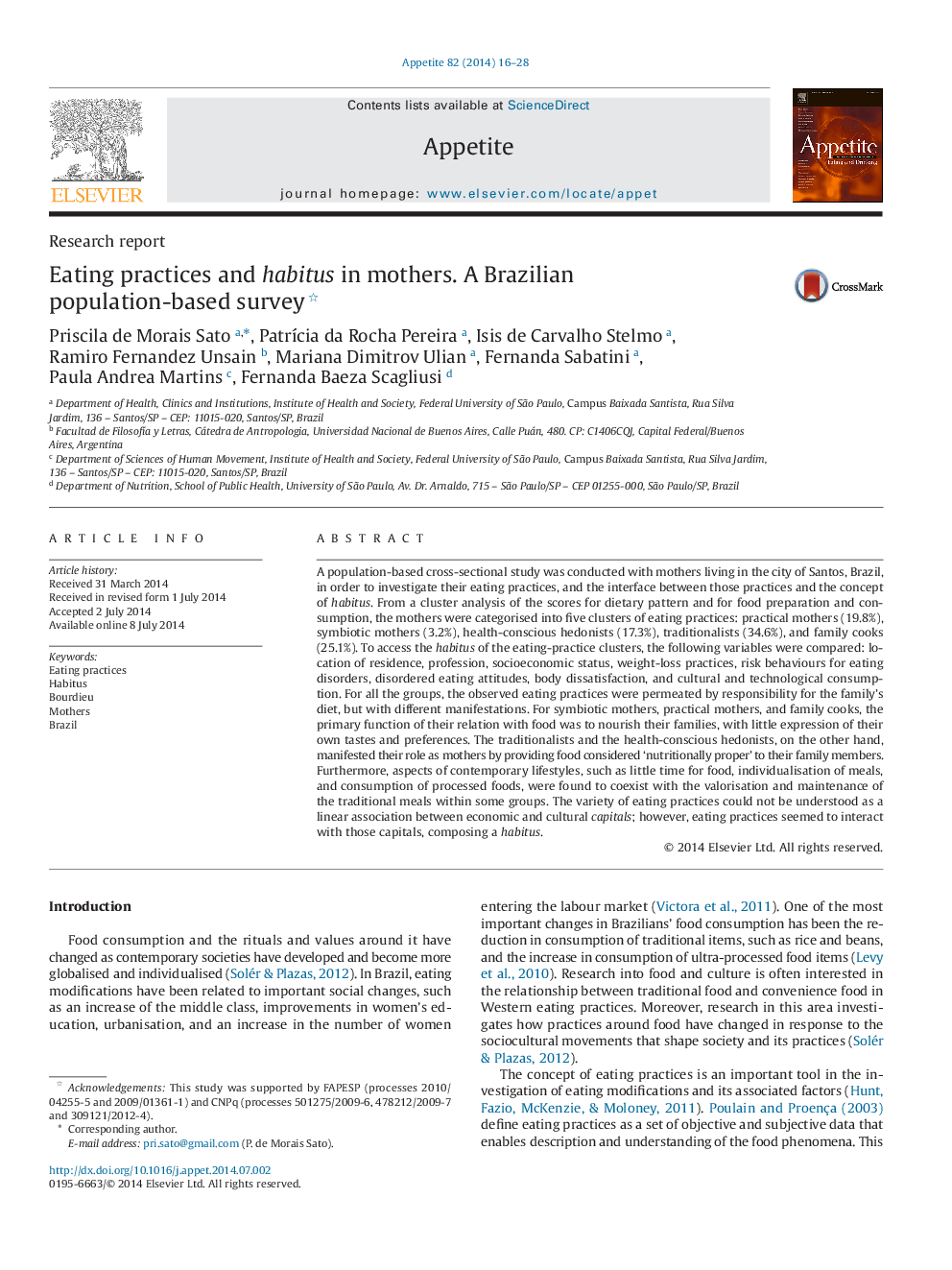| کد مقاله | کد نشریه | سال انتشار | مقاله انگلیسی | نسخه تمام متن |
|---|---|---|---|---|
| 939459 | 1475398 | 2014 | 13 صفحه PDF | دانلود رایگان |
• Five groups of eating practices were found.
• Eating was permeated by expectations related to the social role of mothers.
• Traditional and contemporary eating practices were concomitant in a same group.
• The standard Brazilian meal has become the specific consumption of a niche.
• For the family cooks, fast-food restaurants could be a locus of family commensality.
A population-based cross-sectional study was conducted with mothers living in the city of Santos, Brazil, in order to investigate their eating practices, and the interface between those practices and the concept of habitus. From a cluster analysis of the scores for dietary pattern and for food preparation and consumption, the mothers were categorised into five clusters of eating practices: practical mothers (19.8%), symbiotic mothers (3.2%), health-conscious hedonists (17.3%), traditionalists (34.6%), and family cooks (25.1%). To access the habitus of the eating-practice clusters, the following variables were compared: location of residence, profession, socioeconomic status, weight-loss practices, risk behaviours for eating disorders, disordered eating attitudes, body dissatisfaction, and cultural and technological consumption. For all the groups, the observed eating practices were permeated by responsibility for the family's diet, but with different manifestations. For symbiotic mothers, practical mothers, and family cooks, the primary function of their relation with food was to nourish their families, with little expression of their own tastes and preferences. The traditionalists and the health-conscious hedonists, on the other hand, manifested their role as mothers by providing food considered ‘nutritionally proper’ to their family members. Furthermore, aspects of contemporary lifestyles, such as little time for food, individualisation of meals, and consumption of processed foods, were found to coexist with the valorisation and maintenance of the traditional meals within some groups. The variety of eating practices could not be understood as a linear association between economic and cultural capitals; however, eating practices seemed to interact with those capitals, composing a habitus.
Journal: Appetite - Volume 82, 1 November 2014, Pages 16–28
